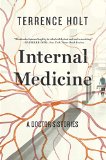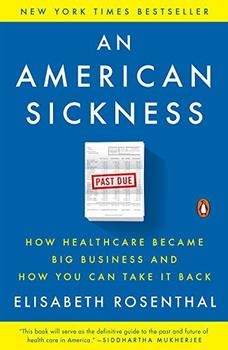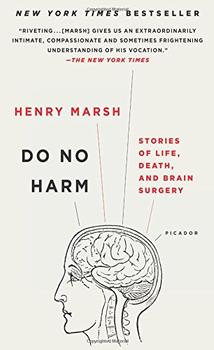Summary | Excerpt | Reviews | Beyond the book | Read-Alikes | Genres & Themes | Author Bio

A Doctor's Stories
by Terrence HoltOut of the crucible of medical training, award-winning writer Terrence Holt shapes this stunning account of residency, the years-long ordeal in which doctors are made. "Amid all the mess and squalor of the hospital, with its blind random unraveling of lives," Internal Medicine finds the compassion from which doctors discover the strength to care.
Holt's debut collection of short stories, In the Valley of the Kings, was praised by the New York Times Book Review as one of "those works of genius" that "will endure for as long as our hurt kind remains to require their truth." Now he returns with Internal Medicine - a work based on his own experiences as a physician - offering an insider's access to the long night of the hospital, where the intricacies of medical technology confront the mysteries of the human spirit.
"A Sign of Weakness" takes us through a grueling nightlong vigil at the bedside of a dying woman. In her "small whimpering noises, rhythmic, paced almost to the beating of my heart," a doctor confronts his own helplessness, clinging "like a child to the thought of morning." In the unforgettable "Giving Bad News," we struggle with a man who maddeningly, terrifyingly refuses to remember his terminal diagnosis, forcing us to tell him, again and again, what we never should have wanted to tell him at all.
At the bedside of a hospice patient dying in a house full of cursing parrots, in "The Surgical Mask," we reach the limits of what we are able to face in human suffering, in our own horror at what happens to our bodies as they die.
In the psychiatric hospital of "Iron Maiden," a routine chest X-ray opens a window onto a nightmare vision of medieval torture and a recognition of how our mortality drives all of us to madness.
In these four stories, and five others, Internal Medicine captures the doctor's struggle not only with sickness, suffering, and death but the fears and frailties each of us - patient and doctor alike - brings to the bedside. In a powerful alchemy of insight and compassion, Holt reveals how those vulnerabilities are the foundations of caring. Intensely realized, gently ironic, heartfelt and heartbreaking, Internal Medicine is an account of what it means to be a doctor, to be mortal, and to be human.
In a way, Holt, looking back on his residency with the subsequent experiences of a full-fledged doctor, has a beneficial hindsight. It is clear that he has taken in what’s important to him from his career experiences, and, after looking thoughtfully at each piece, shows them to us. By this method, Holt carefully and gracefully sculpts his words and stories to the very marrow of their meaning. Under the surface of the simple language he employs, there is enormous impact that makes us sit back and think about these stories long after...continued
Full Review
 (581 words)
(581 words)
(Reviewed by Rory L. Aronsky).
Internal Medicine is but one view of the U.S. medical system. According to The Commonwealth Fund, a private foundation looking to foster a better health care system in the USA, the U.S. ranked last in a survey of healthcare in 11 developed nations - behind Canada, ranked at #10, and way behind Germany & Netherlands in a tie at #5, with Switzerland at #2, and the United Kingdom topping the list. The U.S. ranks last in large part due to its lack of universal health coverage which leads to many having limited access and inadequate coverage due to cost. But access is not the only issue - when efficiency is measured, poor performance is noted on many fronts (such as administrative costs and avoidable emergency room use).
One result of the ...

If you liked Internal Medicine, try these:

by Elisabeth Rosenthal
Published 2018
Award-winning New York Times reporter Dr. Elisabeth Rosenthal reveals the dangerous, expensive, and dysfunctional American healthcare system, and tells us exactly what we can do to solve its myriad of problems.

by Henry Marsh
Published 2016
An unforgettable insight into the countless human dramas that take place in a busy modern hospital, and a lesson in the need for hope when faced with life's most difficult decisions.
Idealism increases in direct proportion to one's distance from the problem.
Click Here to find out who said this, as well as discovering other famous literary quotes!